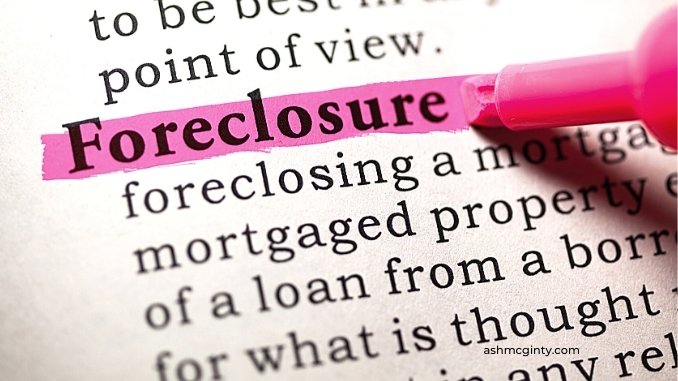
The mortgage and the deed-of-trust are two different types of real property documents. A deed of trust requires a third-party, whereas a mortgage does not. This article will explain the differences. It will also discuss the three-party relationship and non-judicial foreclosure.
There are some differences between a deed to trust and a loan
A deed of trust and a mortgage are similar documents, although they serve different purposes. A mortgage requires you provide a downpayment, while a deed-of-trust requires you to borrow a certain amount. No matter the difference, both documents require that you repay the money after the loan term ends.
A mortgage is a contract between the lender, borrower, and is enforceable in courts. If the borrower defaults on repayments, the lender can foreclose the property through a deed-of-trust. Although it can be used to purchase property, a deed in trust is not as popular as a traditional loan.

A mortgage is a secured loan. A deed in trust is a contract between the borrower (or lender) and a trustee. The borrower transfers title to the trustee, who holds the property in trust for the lender. The title to the property remains in trust until the loan is paid off.
Three-party relationship
Despite their similarity, deeds-of-trusts (mortgages) are not the same. Both types are tied to the house and give the lender the right to foreclose. But the difference lies in how the loan is structured. A deed in trust is usually easier to foreclose because the lender can transfer ownership of the loan to a trustee or sell the property to repay the loan. Lenders often prefer trust documents to mortgages.
A trust deed involves three parties: the trustee, the lender and the borrower. The trustee acts as an impartial third party. The trustee is often a banker, title company or title company.
Non-judicial foreclosure
To protect against non-judicial foreclosure, a borrower must show that they are able to afford the monthly repayments. This is hard to prove. However, there are certain ways to stop the foreclosure process and avoid foreclosure altogether. The borrower must first submit a breach letter to the lender within the first 30 days of missing payments. After that, the borrower has up to 120 days to reinstate missed payments and negotiate a new payment plan with the lender.

Non-judicial foreclosure is a process that doesn't require a court hearing. It takes less time and usually costs less than a traditional judicial foreclosure. It is possible to choose from different methods of foreclosure depending on the state.
FAQ
How do I calculate my rate of interest?
Market conditions influence the market and interest rates can change daily. The average interest rates for the last week were 4.39%. To calculate your interest rate, multiply the number of years you will be financing by the interest rate. For example, if $200,000 is borrowed over 20 years at 5%/year, the interest rate will be 0.05x20 1%. That's ten basis points.
How long does it take for my house to be sold?
It all depends on several factors such as the condition of your house, the number and availability of comparable homes for sale in your area, the demand for your type of home, local housing market conditions, and so forth. It can take from 7 days up to 90 days depending on these variables.
Is it better buy or rent?
Renting is generally cheaper than buying a home. It is important to realize that renting is generally cheaper than buying a home. You will still need to pay utilities, repairs, and maintenance. You also have the advantage of owning a home. You will be able to have greater control over your life.
What should I look for in a mortgage broker?
A mortgage broker is someone who helps people who are not eligible for traditional loans. They search through lenders to find the right deal for their clients. There are some brokers that charge a fee to provide this service. Other brokers offer no-cost services.
Is it possible to sell a house fast?
If you plan to move out of your current residence within the next few months, it may be possible to sell your house quickly. There are some things to remember before you do this. You must first find a buyer to negotiate a contract. Second, prepare the house for sale. Third, you must advertise your property. Finally, you need to accept offers made to you.
Do I need to rent or buy a condo?
Renting may be a better option if you only plan to stay in your condo a few months. Renting will allow you to avoid the monthly maintenance fees and other charges. On the other hand, buying a condo gives you ownership rights to the unit. You are free to make use of the space as you wish.
Statistics
- This seems to be a more popular trend as the U.S. Census Bureau reports the homeownership rate was around 65% last year. (fortunebuilders.com)
- Over the past year, mortgage rates have hovered between 3.9 and 4.5 percent—a less significant increase. (fortunebuilders.com)
- 10 years ago, homeownership was nearly 70%. (fortunebuilders.com)
- The FHA sets its desirable debt-to-income ratio at 43%. (fortunebuilders.com)
- Based on your credit scores and other financial details, your lender offers you a 3.5% interest rate on loan. (investopedia.com)
External Links
How To
How to Find Real Estate Agents
Real estate agents play a vital role in the real estate market. They offer advice and help with legal matters, as well selling and managing properties. Experience in the field, knowledge about your area and great communication skills are all necessary for a top-rated real estate agent. For recommendations, check out online reviews and talk to friends and family about finding a qualified professional. You may also want to consider hiring a local realtor who specializes in your specific needs.
Realtors work with homeowners and property sellers. It is the job of a realtor to help clients sell or buy their home. A realtor helps clients find the right house. They also help with negotiations, inspections, and coordination of closing costs. Most realtors charge commission fees based on property sale price. Unless the transaction closes, however, some realtors charge no fee.
The National Association of Realtors(r), (NAR), has several types of licensed realtors. NAR members must pass a licensing exam and pay fees. The course must be passed and the exam must be passed by certified realtors. Accredited realtors are professionals who meet certain standards set by NAR.